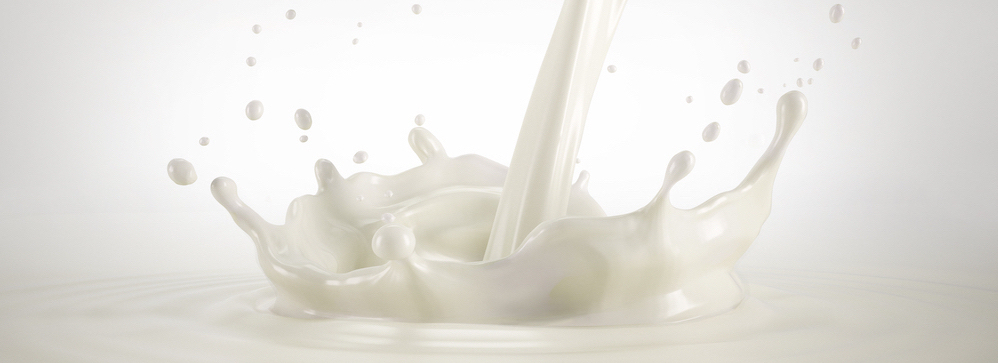This month sees Nutrition and Hydration Week on the health calendar, highlighting the importance of enjoying both a nutrient – and fluid-rich diet. Registered dietitian Juliette Kellow, reveals how milk and yogurt can contribute to both…
Making sure we have enough water is vital for our health. It helps to control our body temperature and maintains our physical and cognitive functions – all those mental activities that affect our attention, memory and language, as well as our ability to think, make decisions and solve problems.
With so many important roles, it’s unsurprising we quickly feel the impact of dehydration. When fluid needs aren’t met, headaches, fatigue, dizziness, irritability and poorer concentration all become more likely. Our lips and mouth become dry, and we feel thirsty. It also increases the risk of constipation, kidney stones and urinary infections.
As fluid requirements depend on so many things, there’s no set formula for knowing how much we need to drink to stay hydrated – and certainly no fixed daily target. Factors we can’t change such as our body size, gender and age play an important part. But our needs also vary according to how much fluid we lose from the body – and this can vary on a daily, even hourly, basis. Hot weather, humidity, exercising, having a fever, eating spicy food, or suffering with hot flushes during the menopause mean we sweat more. Many illnesses can cause fluid losses from the body, and some medications and alcohol have a diuretic effect (that is, making us pee more frequently).
All these factors highlight how guidance to drink around 1.5-2 litres a day – often translated into 6-8 glasses of fluid – is at best a rough guide.
But just what should we drink? Except for alcohol, all drinks count towards fluid requirements. Water is the gold standard, but tea, coffee, hot chocolate, squash, fruit juice, smoothies, juice drinks, and low-calorie and regular soft drinks all count – as does milk.
While hydration is the main goal, when it comes to choosing what to put in your mug or glass, health experts also recommend looking beyond the fluid and choosing drinks that match nutritional needs. And that’s where milk really shines. Plain milk is naturally packaged with no added sugar and heaps of nutrients, including protein, calcium, phosphorus, potassium, iodine and vitamins B2, B12 and B5. Plus, with a range of fat contents, there are choices to fit different calorie needs. For example, for those looking to lose or maintain their weight, lower-fat varieties may be a preferred choice.
So just what comes with the 200ml fluid in a glass of semi-skimmed milk? To start with, it has 95kcal – around 5% of the Reference Intake (RI) for calories – and contains no added sugars. A glass of milk can provide a significant amount towards our daily nutrient needs…
- 14% protein
- 16% potassium
- 23% vitamin B5
- 28% phosphorus
- 31% calcium
- 35% vitamin B2
- 41% iodine
- 76% vitamin B12
That’s a lot of nutrition for 200ml of fluid!
Meanwhile, unlike most other drinks, milk is a versatile fluid. As well as being tasty on its own, it can be incorporated into other drinks and added into recipes. Many of us already add it to tea and coffee, but we can up the nutrition of those drinks by making milky coffees such as lattes or cappuccinos, or hot chocolate. Or for a cold choice, it can be blended with fruit to make a no-added-sugar milkshake that provides one of 5-a-day. Unlike many other drinks, milk is also easily incorporated into meals. It’s the top choice for serving with cereal or porridge, and can be used to make custard, rice pudding, white sauce to go with pasta or veg, or even added to soups such as leek and potato.
Which neatly leads onto the point that the food we eat also plays a role in keeping us hydrated. In fact, around a fifth of the fluid in our diet comes from food. And this is where another dairy product shines. Yogurt typically contains around 70-90% fluid, depending on the variety – and like milk, that fluid comes with a variety of nutrients.
Low-fat fruit yogurt, for example, consists of 79% fluid. It means a 150g pot of low-fat fruit yogurt provides almost 120ml fluid. Alongside this, it contains 117kcal (around 6% of the RI), is low in fat and saturates, and like milk, makes some significant contributions to can provide a significant amount towards your recommended daily intakes for …
- 13% protein
- 15% potassium
- 16% vitamin B1
- 20% vitamin B12
- 23% vitamin B2
- 26% calcium
- 26% phosphorus
- 48% iodine
Again, it’s another example of how dairy products shine for providing both fluid and nutrients.
So, if you want to enjoy nutritious hydration, you can’t go wrong with putting milk and yogurt on the drinks and food menu.
Check out our recipe section for some inspiration.

